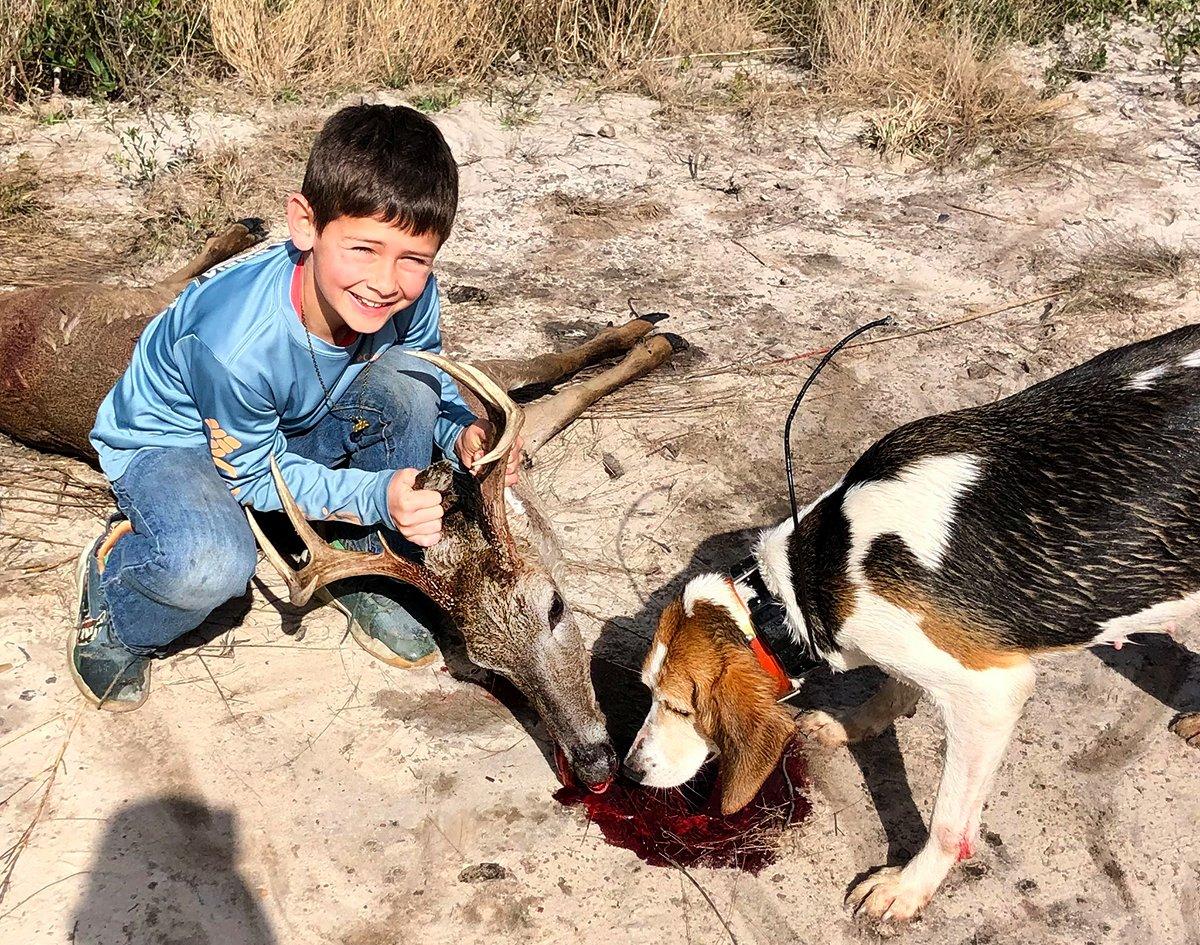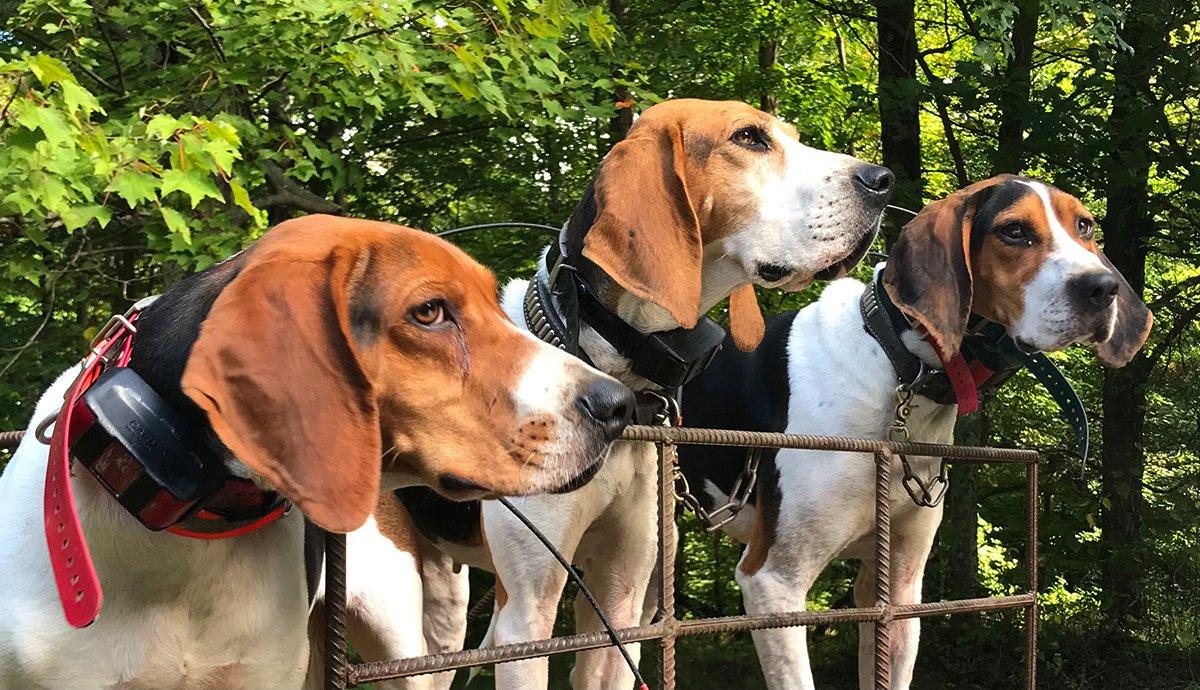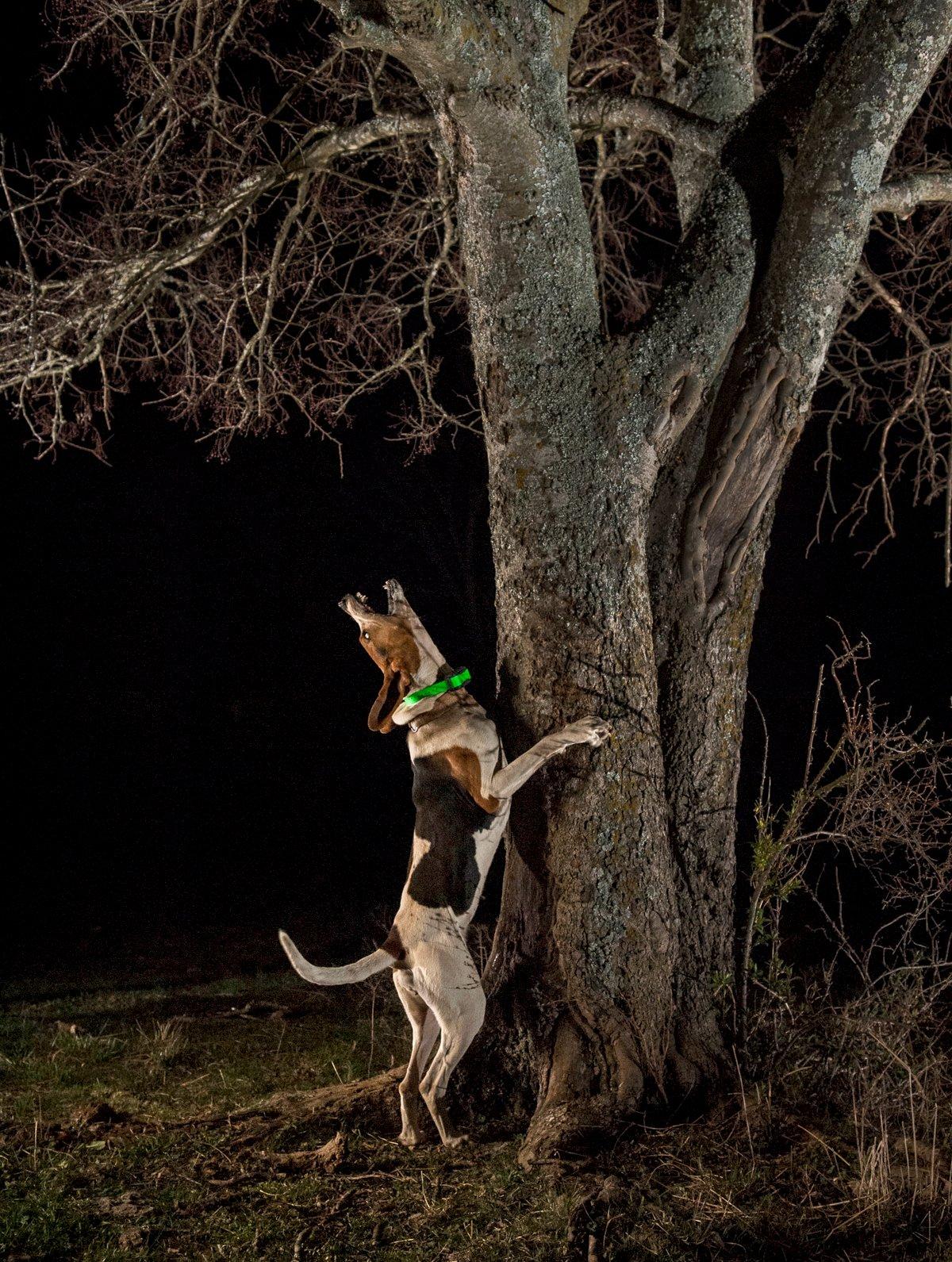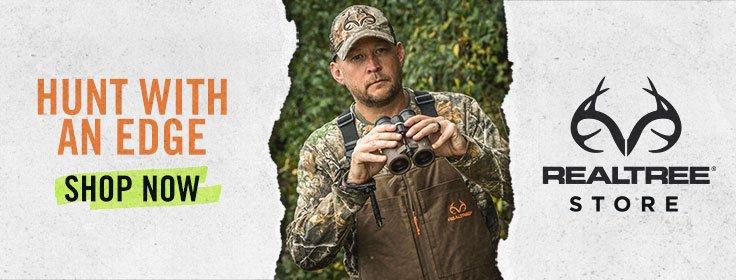Urban sprawl, small properties, and today's preferred hunting tactics could spell the end of a centuries-old tradition
If you are a Northern or Midwestern deer hunter, the thought of standing in the woods with a loaded shotgun as a pack of hounds pushes a deer in your direction might seem as alien as popping one through an open truck window while your buddy holds the light.
But if you're a Southern hunter trying to find a deer in 5,000 acres of featureless swamp and pine forest, those hounds might be how your family has hunted for generations. And it might be the only way you are likely to see a deer in several days of hunting.
Hunters on this continent have used hounds to pursue various game animals since before the United States existed. Scotch-Irish immigrants in the mid-1700s brought the tradition of chasing deer with hounds.
Almost immediately, legal challenges arose. In 1876, Wisconsin banned dog hunting deer altogether. Soon after, the Adirondack Deer Law of 1888 greatly limited dog hunting in New York. By 1920, pretty well all of the northeastern United States had banned pursuing deer with hounds.
Although deer hunting with hounds slowly went away across most of the country, using hounds for other game such as raccoons and bears in the Northeast and Midwest and big cats in the West continued.
As hound hunting declined across a large portion of the nation, it thrived in the South. Today, at least portions of Virginia, Alabama, Arkansas, Florida, Georgia, Louisiana, Mississippi, North Carolina and South Carolina still allow deer hunting with hounds. It's a tradition that spans multiple generations of families and dogs.
Why here and not in other areas? Much of it is terrain. Many areas of the South consist of thousands of acres of thick swampland with no discernible trails or edges. It's tough walking, and traditional stand hunting methods simply don't work well in such situations. Instead, hounds are used to trail and push deer or other game from these areas toward waiting hunters.
But even in the hotbed areas of hound hunting, development and urban sprawl are breaking up the large tracts of land where dogs had been traditionally used. In many states, new laws directly target hound hunters. In Mississippi, a state where laws have traditionally favored dog hunters over private landowner's rights, a recent Prentiss County chancery judge stated that deer dog hunters in Mississippi can no longer let their dogs trespass on other people's property. The case stemmed from repeated confrontations between landowners and local hound hunters and was among the first in the state to place property rights over hunting rights. Many expect the precedent to have a ripple effect across other states.
In South Carolina, lawmakers sought to head off increasing confrontations between hound hunters and landowners by passing the Renegade Hunter Act in 2010. The law requires all hunting dogs to list the owner's name and phone number on their collar. Hunters whose dogs are found on private property without permission are now subject to fines that can quickly add up to thousands of dollars when a large number of dogs are involved. Meanwhile, the law states that landowners cannot harm hunting dogs and will be monetarily responsible if they do.
It all comes down to space, said lifelong South Carolina Low Country hound man Lee McKinsey. "My grandfather and father hunted this entire area back when it was all big farms. In the prime of my dog hunting days, back in the '80s, there were at least 40 dog hunting clubs within 25 miles of my house. Most of them ranged from 2,000 to 5,000 acres or even larger.
Today, most of those farms and clubs have been purchased by developers for homes and shopping centers, or by paper or timber companies who don't really want to deal with hunters at all, but especially with hounds. Even the hunting clubs that remain have switched over mainly to still (stand) hunting methods. All those trophy hunters sitting in a stand or shooting house all day used to be the standers for a pack of hounds."
(Don't Miss: 3 Killer Sounds for February Coyote Hunting)
McKinsey fears he's seeing the end of a tradition that dates back to colonial times.
When I was young, I'd work all week and hit the woods with my hounds every Saturday," he said. "I started taking my boys with me when they were just babies on the days my wife had to work. It was nothing for me to be changing a diaper on the front seat of my truck as the dogs would strike a deer. Today, all the land is chopped up into small farms and house lots. It's hard to let a pack of hounds out because there isn't anywhere they can go that won't end up on someone else's land. I expect to see the end of hound deer hunting altogether in my lifetime."
Neighboring North Carolina hound hunter Reece Baker agreed. He comes from a long line of hound deer hunters and has carried on the tradition of breeding dogs specifically to fit his favored hunting style.
I grew up hunting this way," he said. "I also love to hunt with bow and muzzleloader, but there's just something about hounds. We face a lot of challenges these days. The big farms we used to hunt have all been chopped up. It's getting harder to find large tracts of land to run on."
Like many hound hunters, his club has switched to mostly hunting public areas.
Hound hunters face a lot of misconceptions," Baker said. "Back in the '90s, hunting shows became popular, and people started watching them and hunting the way they saw on TV — sitting in a stand, often over bait. When people moved in to our area and purchased farms, they didn't know anything about the tradition of hound hunting or even how it works.
They say we run off 'their' deer, but that deer doesn't live entirely on their farm — it roams around. Unless the hounds are on its trail, a deer doesn't pay a lot of attention to them. I've watched bedded deer lay just off a trail and let a pack of hounds run right past them. I've also seen deer circle back to almost the exact spot were they were jumped if one of the standers doesn't get them."
Baker said non-dog hunters get a lot of other things wrong about hound hunting.
They claim we wound deer and don't find them, but in my experience, hound hunters have one of the lowest wounded/not-found rates in deer hunting," he said. "Think about it. We don't have to wait for a tracking dog if we have a deer that doesn't go down soon after the shot. The dogs are already there, and they won't quit till we get the deer. Folks also claim that we will run all the deer out of an area, but like I mentioned earlier, unless it's being followed, the deer don't care about the dogs. They have grown up with packs of coyotes, and they look at dogs as just another thing in the landscape. Hunting is first and foremost about conservation. Baiting up a farm and only killing big bucks and no does isn't conservation, it's hoarding. And that isn't good for the deer or any other wildlife that lives there.
Baker and McKinsey strongly refute the theory that hound hunting is unsafe. They said that every hunt starts with a safety meeting and that new hunters are often paired with more experienced folks for their first few hunts.
We space the standers out so that everyone is about a gunshot-and-a-half apart and have designated standing locations that everyone knows," McKinsey said. "Hunters aren't allowed to just roam around. It's a structured thing to make sure the hunters and the dogs are safe."
Still, even diehard hunters such as Baker realize that times are changing and hound hunters need to change to keep the tradition alive.
We have to police our own and expose the hunters that are making us look bad," he said. "And we have to change the way we hunt. Like moving to large tracts of public land, using modern GPS collars to keep track and calling the dogs off a trail that might stray onto someone else's property.
Not Just Deer
Deer hunting conflicts often receive the most coverage, but other types of hound hunting are also facing pressure. In Vermont, a recent viral video of a confrontation between a landowner and a bear hunter has brought the act of hunting with hounds and Vermont's land posting laws into the media spotlight.
With millions of online views, the continuing conflict has even drawn in Steven Rinella and the Meateater crew, who weighed with an opinion on a podcast. A resulting online petition to stop bear hound hunting has more than 100,000 signatures and has gained the attention of state politicians and wildlife officials.
Even in areas where hound hunting could be beneficial to landowners, it's getting tougher to get permission to hunt. Many land managers agree that raccoon populations are up and can be a detriment to turkeys, but Doug Johnson, president of the Kentucky Houndsmen Association, said it's getting harder to find places to hunt.
Urban sprawl and family farms being parceled off and sold have made it harder for almost any type of hunter to find good hunting grounds," he said. "Hound hunters simply need more area than most other types of hunting to free cast their dogs. It's the nature of the sport. Hounds usually are not bred or trained to stay in close proximity to their handlers. Unlike pointing dogs and retrievers, they don't look to their handlers for direction. Bear hound hunters have an even bigger challenge, as bears will usually travel a much longer distance than raccoons.
Johnson seconded Baker on the theory that hound hunting has no effect on deer populations and travel patterns.
I'm a deer hunter and a coon hunter and have been both since I was 12 years old, and I'm 61 now," he said. "I coon hunt the same places that I deer hunt and always have. There is a misconception that trained coonhounds run deer and will scare deer off of your hunting area. I got a news flash for everyone: Deer live with coyotes on almost every farm in America and they haven't caused them to vacate their home range. I can't count the many times I've encountered bucks of all sizes, does and fawns bedded down and totally unconcerned about me or the dogs while coon hunting. There's no denying that deer will move away from dogs and coyotes if they're on their feet, but they usually go back to whatever they were doing fairly quickly after the interruption.
(Don't Miss: 10 Big-Buck Lessons Learned from Last Fall)
Regardless of the quarry, hound hunters find themselves in an ever-tightening noose. With fewer participants and ever-increasing hunter/landowner conflicts, even many in the hunting community are turning against them. And state DNRs are taking notice. In 2016, the Virginia Department of Game and Inland Fisheries, now the Virginia DNR, issued a report titled "Deer Hunting With Dogs." In that report, the department noted, Trends of increased land development, reductions in forested parcel size, and decreased agricultural uses will undoubtedly continue to strain the compatibility of traditional hound hunting with changing cultural expectations.
Will we see the end of traditional hound hunting in our lifetime? Many hound hunters think so. With ever-decreasing land availability and increasingly anti-dog laws, it gets harder to hound hunt each year. Many hound hunters have switched from large hounds and wide-ranging quarry to smaller dogs, such as beagles, and tighter-ranging hunts, such as rabbits or squirrels, so they can continue to train and hunt with the dogs they love without worrying as much about landowner conflicts.
"I'm way down from the number of dogs I used to have, McKinsey said, but I'll keep a few dogs around as long as I am able, and I'll take them out hunting as often as I can, even if its just a quick trip to the local woodlot for a squirrel or two.











